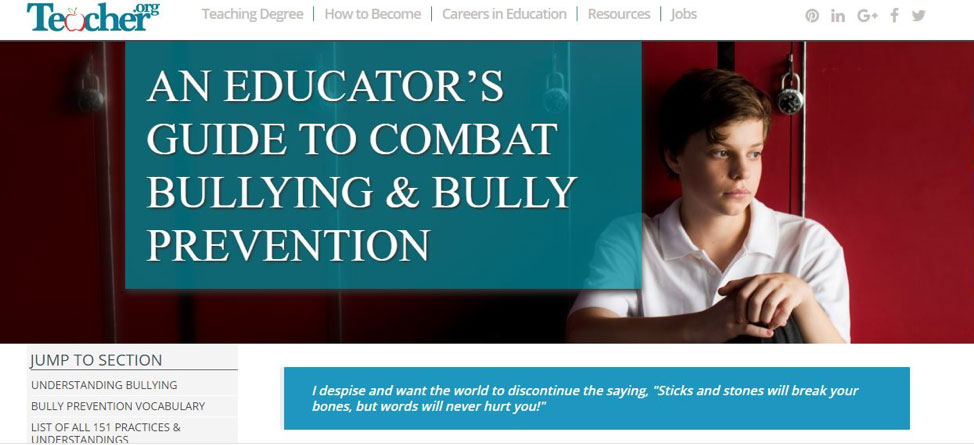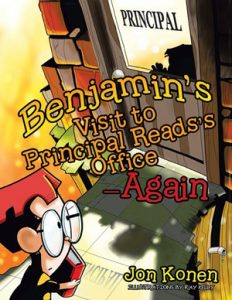8 Reasons Why Blogging Can Support Your Growth as an Educator
2/14/2020

"You don't start out writing good stuff. You start out writing crap and thinking it's good stuff, and then gradually you get better at it. That's why I say one of the most valuable traits is persistence."
�- Octavia E. Butler
We want our students to be good writers. We want them to be able to communicate clearly and effectively by using their words. Why does it have to be so painful for many of our students?
My question for you is: is it painful for you as an educator to write?
If the answer is no, you must start blogging. If the answer is yes, you must practice what you preach…and begin writing anyway. Whatever your answer is, you must start writing.
If we can find ways to be writers, we can better instill this trait in our students. And a bonus…writing can heal, encourage, strengthen, empower, and grow you as an educator.
Too many times educators will not start writing because they believe it's going to take too much time. They think about the writing process: the editing, the revising, the rough draft, and final copy of the product. This all sounds daunting as we begin writing.
LET ME TELL YOU…it doesn't have to be like that. The length of your writing, the format, and topic you chose are all up to you. Start with a paragraph a day or even a short reflection from reading a quote.
Personally, I started with Word Press. It is a free blogging site where you can create your own backgrounds and the length and format of your writing is totally free for you to decide. I then was lucky enough to apply to an open position from an education website that pays for me to blog - Teacher.org!
I started writing weekly blogs, was encouraged to create a bully prevention guide, and everything took off from there. As my job responsibilities have increased, I have only been able to blog one to two times a month, but hope to get back to a weekly submission.
I believe all educators should be writing…whether it's a paragraph or an ongoing series of articles. Get the words flowing! My dad is an avid reader, not much of a writer, but his favorite author is Louis L'Amour. In fact, he has read all his books. I found a great quote from L'Amour that connects to writers getting their words flowing:
"Start writing, no matter what. The water does not flow until the faucet is turned on."
- Louis L'Amour
Many educators are already writing…they may not even realize it! It may not be the best of writing, but they are writing posts on Facebook, tweeting their own thoughts on Twitter, and more.
Formalizing all your writing into one location can be powerful for so many reasons. Here are eight reasons why you should start blogging to grow as an educator.
1 - Model Writing for Others
Growing up in a family where my dad was a successful businessman, my mom was an elementary teacher, and my sister was in advanced placement English all throughout her high school experience, one would think I might have some writing genes! Nope!
In fact, I grew up hating writing. I hated to push a pencil or type. My thoughts came out all jumbled and my English teacher worked and worked with me. I even learned how to diagram sentences like a mad man, though I couldn't form sentences in a logical manner. I would leave out important information, jump from one event to another with no linear procession, and switch between first person and third person routinely…actually not much different from now, but at least I can go back and edit and revise.
What was I doing teaching writing to middle school students? I moved from teaching elementary 5thgrade to teaching three 90 minute blocks of English Language Arts (ELA) in a middle school. I was lucky enough to loop with many of the same students I taught in fifth grade. I found I had to switch my mindset on ELA…I had to fake loving it at first!
I began doing more and more writing for my master's degree at the same time as I was teaching 6thgrade…I chose educational leadership. At first, the writing was quite difficult, and I noticed my writing was very similar to my own students. The more I wrote, the more the words easily flowed. I began doing some creative writing, even teaching a breakout club at the middle school; stand-up comedy. We would watch some comedians do a standup routine, then we would write our own jokes and practice standing up and saying them in front of the class. This was a disaster at first, but the students in this club helped me see that writing could actually be fun.
I then garnered a principal position in a small rural school in north central Montana. I continued writing newsletters and correspondence for the parents and community. In addition, I wrote articles for the local Choteau Acantha pertaining to our school.
At the same time, Myspace was just becoming popular among students. Several of them started communicating using this platform. Fun fact, my first suspension of a student was for bully behavior on Myspace back in 2005. Personally, I didn't catch on with this new technology.
From there I got another principal position in a larger school district. I continued writing and creating assignments for students. Many times I would complete the writing assignment with them to model how much I loved writing, as well as the thought process that went into the many steps of becoming a better writer.
Finally, in 2016, I started my own WordPress blog. I started with only a paragraph or two weekly about topics that connected to my education experience.
There is power in modeling writing for others, even if you do not think you are a very good writer. You must start, and keep writing. Students will see that it is normal to make mistakes, have perseverance, and continue to revise your writing. Anyone can be a writer…even this sports minded, writing-hater turned prosperous old man! I love this quote from Jodi Picoult that quickly sums up why you must start writing.
"You can always edit a bad page. You can't edit a blank page."
�- Jodi Picoult

2 - Grow As a Writer
Modeling writing can support others in their writing process. Others get to see how you chose words and put them together into some type of coherent message. You can actually see the growth of a writer, because words are black and white and visible!
Likewise, as a writer you can check out your own work and see the growth. My first blogs were crap and you can see much of those right here in this blog roll if you go back to 2017. Some of them received over a couple thousand views, but nothing like my last article that just broke 1,000 shares in under a week!
The style, format, diction, and figurative language you chose to use says a lot about who you are as a person. Technical writing may be boring for you, and having to follow a strict APA or MLA format might make you gag. Creative writing and personal narrative have exploded on social media as people tend to like real stories about real people…much the same phenomena we see with all the reality TV shows.
For most of us, we remember thinking, "Why would people be interested in watching real life (reality) television shows?" Now scrolling through the television guide you will find a plethora of reality shows that cover almost every aspect of life from decorating cupcakes to being, Naked and Afraid in the wild.
Pick a format and continue writing. Change it any point, but continue to write and be creative. As for me, you can call me the "list man." One of the tips and tricks I picked up from my last editor was the fact that people like looking at articles if it states something similar to this, "8 Tips to Regain Student Culture." People quickly want to see if what they were thinking would be on the list. I found myself doing the same thing. I wanted one more tool, strategy, and idea from these lists every time I click on the link. I have now done over 80 blog articles that all contain lists…much like this article!
So, you ask, how does this lead to personal growth? I am always trying to connect the not so obvious to my personal educational experience. My last blog was about the benefits of teaching in Montana…I connected my favorite breweries, my favorite steak joints, and my favorite places to visit. This all creates imagery for the reader to place themselves somewhere in Montana doing the same thing! My growth area has been to connect with the reader in new and creative ways. In addition, I am still working on being more concise with my message, as well as telling a story that educators find relatable.

3 - Stronger Reflection
Reading back over my own articles and blogs sometimes is arduous. I hate thinking that I could have taken more time to write and explain myself. I get into this reflection mode where I continue to revise and edit, revise and edit, and I finally have to say to myself…"hit send!"
Reflection of the writing process can be a powerful tool in getting your words on paper and connecting a reader to the text. I read the articles out loud for readability…every time. Ultimately, I'd love to be considered to be as good as the people I am around and the books that I have read.
Yes, the books you read can be used for stronger reflection. The more difficult books you read and understand, the better you can articulate your own words in your writing. This is another area I could definitely improve upon. I should be reading more…and reading books that are non-educational. I tend to get stuck reading many educational books that interest me and I cannot put them down.
There is another use of writing, the power of self-reflection, and not just the writing process. As educators we make 1,000's of decisions daily. Include our personal lives into this count and I would argue we probably make some of the most decisions than any other profession.
The ability to reflect on life, including your personal and work life, can be done so in writing. I cannot count how many articles I have started, but have chosen not to publish. For example, I recently wrote an article about how my divorce has impacted parts of my work life. Powerful, but I am not ready to share it. I do feel so much better getting my thoughts out, and reflecting on why I am writing what I am writing. This metacognitive process can be a powerful growth strategy for educators.

4 - Connect to your Teaching Expertise
My favorite topics to write about are school culture, promoting public education, bully prevention, and supporting teachers transitioning from good to great!
I have written countless articles in each of these areas and have even written two guides for others to use and follow. Both guides have over 20,000+ views in the past three to four years. That tells me someone is clicking on them…whether the articles are very good or not, I leave that up to you to decide!
Writing about what you know and what you teach can be very exhilarating. You get to become the expert in room 9. You can write about the content and how the students interact with the content. You can even create your own writing assignments connected to the content. Then try writing about your students writing; it can be very interesting to others wanting to do what you are doing in your classroom.
I love walking down the hallways of my school. I can find 1,000's of topics to write about that could be interesting to others. There is a story hidden in every student, hidden in every corner of the school, and connected to something spectacular in order to create a vivid story. Take a walk with your notebook and start writing down topics that you see in your school: teacher effectiveness, strong content, engagement ideas, hallway procedures, school culture, bully behaviors, students showing positive growth mindset, and so much more.
That reminds of a great quote from Orson Scott,
Everybody walks past a thousand story ideas every day. The good writers are the ones who see five or six of them. Most people don't see any.
- Orson Scott

5 - Set Goals
Goal setting is probably one of the most powerful strategies you can use with your students. Setting S.M.A.R.T goals can be fun and useful. A SMART goal must include the following attributes:
- S - Specific
- M - Measurable
- A - Achievable
- R - Relevant
- T - Time bound
Putting your SMART goals into writing makes them real. When you set your goals in writing, posting them where they can be visible for you is important. Too many times people create goals and hide them in their emails or work files. Instead, put them on your wall or your door so they hit you in the face each and every day.
The act of goal setting in writing is a strategy that John Hattie, educational researcher, says has a 0.5 affect size (anything above 0.4 is a great strategy to use in the classroom). You can get your students to achieve enormous goals.
In addition, the act of goal setting for your own writing can be part of these SMART goals. Start with an easy goal…try something similar to this:
- S - I will write a blog post.
- M - I will write one paragraph.
- A - One paragraph three times a week is achievable in my schedule.
- R - I will write about a topic from classroom that is relevant to me, and possibly others.
- T - I will post the paragraph the next month.
When you combine this information into a SMART goal, it can be stated as the following, "I will write a one paragraph blog post on my classroom three times per week for the next month." At the end of the month, you may have 12-15 paragraphs of writing from your classroom.
What could you change in your life the next time you set your SMART goal?
Personally, my goal when I started writing for Teacher.org was to write one article per week. I did not hit my goal, in fact I only wrote 23 articles in 52 weeks last year. This year, I changed my goal to one per month. I have exceeded this goal as I have been doing two per month currently!

6 - Heal, Rejuvenate, and Empower
As discussed in #3 above, writing can be used to heal, rejuvenate, and empower others, as well as yourself. It seems when I turn on the news on television I see people fighting, breaking laws, and I see it is evident that there is a huge void of kindness. Why not use your writing powers for good?
I have poured my heart into articles about school culture. I feel I have done my job if just one person feels healed, rejuvenated, or empowered. I believe in Dr. Bill Dagget's mantra, "Culture trumps strategy." This means that the overall culture of a school is a far more powerful indicator in student success than any one instructional strategy or textbook.
How can you heal someone? Showing compassion and empathy with your writing might seem ridiculous, but I believe if we all spent more time healing and less time attacking, the world would be a better place. Bringing people together, getting them to see something from a different perspective, and connecting people with resources is a way of healing that can be done with your writing. Start easy by first researching and writing about what you know.
How can your rejuvenate someone? The ability to give advice from what you have learned is only good if someone actually reads your stuff. Too many times I feel like my writing goes unread, yet I hope that someone picks it up and gets something out of it! You can use your words to rejuvenate someone. One example is a second grade teacher in my building that has been doing room transformations, inspired by Hope and Wade King's book, The Wild Card, and "Get Your Teach On" mantra. She is continually looking for new ways to transform education for her students by making it engaging and full of surprises! She has written about these transformations and had several shares and views on Teacher.org/daily. Rejuvenating yourself through research and taking a chance can inspire you to love your job differently and bring a new level of satisfaction.
How can you empower others? Several of my last blogs have been about the need to fund and fight for public education in America and specifically in my own state and school district. Every time I talk about the problems I see and foresee coming, I make sure to include solutions. Nobody wants to read about someone who points out all the problems without fixes! My goal is to have my solutions discussed and if just one person implements them I feel I have attained my goal. Nothing is more empowering than offering solutions and giving people a voice. When we empower people through our words it creates a sense of pride that we can bring people together…something this world needs more of for sure…again, watch the nightly news if you do not believe me!

7 - Write a Book
The All-American dream is to one day write your novel. It is very hard to pick up a pen or to start typing the novel when you have not written very much. In fact, the few authors that get published and their books is an immediate success. The author of Where the Crawdad's Sing, Delia Owens, was 70 years young when her book was published. Only a few thousand copies were made at first and now there are well over 100,000 copies in print now. It is never too late to start.
Personally, I have written a children's book but have had little time to market it. I chose to self-publish and pay for marketing, which hasn't turned into much… yet. I love my book, not just the words in it, but the illustrations especially. Ray Kelly, the illustrator, did a remarkable job with the story, and brought the words to life.
Start writing a blog…it is a great way to build content, the content for your book. Chose something you know well or create a theme for your writing and get your content built up. It is much easier to get your book written when you already have parts of it penned!
All this can be done if you just start writing. Write about what you know. Write about what you're passionate about. Write about what you do not like, but make sure to give ideas on how to change it! The key is to get writing!
This reminds me of a great quote from Sylvia Plath,
"And by the way, everything in life is writable about if you have the outgoing guts to do it, and the imagination to improvise. The worst enemy to creativity is self-doubt."
-- Sylvia Plath

8 - Share the Funny, Sad, and Deeply Emotional Educational Stories
As an educator, you have so much you can write about that walks through your doors each and every day. You have the kids that make you laugh, the kids who make you cry, and the stories about your kids' home lives that leave you reeling with secondary trauma.
What makes you happy with your students, colleagues, parents, or community? There are so many feel good stories out there, you must uncover them. If we do not start telling these stories more, than people we may not like are going to tell the story for us…and possibly inaccurately. Make sure you have permission to use the names of your students in your writing. If not, make names up, and also make sure the story is unidentifiable enough that someone cannot hold you accountable for breaking FERPA or HIPPA laws.
When writing about your student's stories, understand your audience could be their parents. You must understand the impact your words can have on a family, school, and even community. In a recent interview process I went through last year, a constituent came up to me and asked me about a politically charged article I had written a year prior. This told me that that person went through all 80 articles to find dirt on me. Guess who went back through all the articles…me! I have made sure to write from a point of view that is powerful and empowering for the masses, and not attacking any one individual or small group of identifiable people.
A good idea is to run your stories by your administrator before publishing. I know your administrator does not want more work, but after you get the hang of writing without identifying anyone, your writing can become more powerful to you and others. My school district asked that I do not use the district's name, nor the name of my elementary school of which I am a principal. When you look at my 80+ blog posts, you will not see my district or school stated unless I am quoting someone or something and have permission.
- Learning How to Say No and Set Boundaries with Parents - November 21, 2022
- If You Had Only One Behavior Strategy to Use in Your Classroom, What Would It Be? - September 26, 2022
- Live Your Code: 7 Strategies That Will Help You Be the Most Effective Educator You Can Be - August 15, 2022










